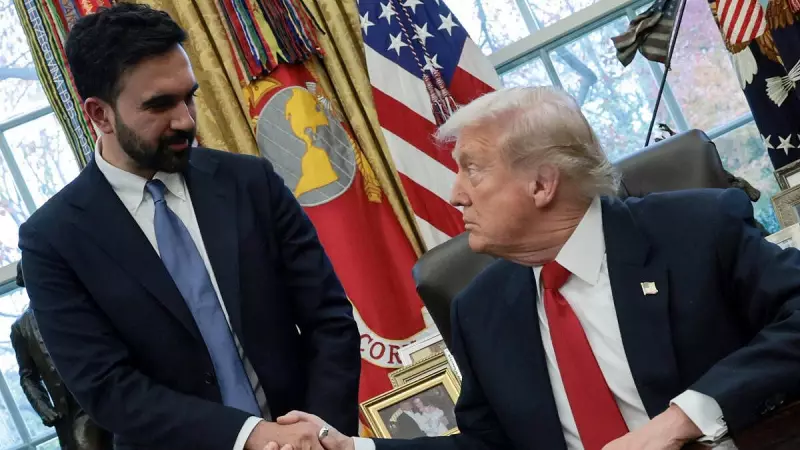
Former United States President Donald Trump has once again made the controversial claim that he single-handedly resolved the long-standing conflict between India and Pakistan during his presidency. This assertion came during his recent meeting with renowned academic Mahmood Mamdani, director of the Institute of Social Research at Makerere University in Uganda.
The Controversial Meeting Details
During their conversation, Trump repeated his familiar narrative about mediating between the two nuclear-armed South Asian neighbors. The meeting took place in Florida, where Trump has been residing since leaving the White House. This wasn't the first time the former president has made such claims, having previously asserted that former Indian Prime Minister Narendra Modi had sought his mediation help for the Kashmir issue.
Trump's latest comments come amid his ongoing campaign for the 2024 presidential election, where he continues to highlight his foreign policy achievements during his term from 2017 to 2021. The timing is particularly significant as he positions himself against current President Joe Biden.
Historical Context of Trump's Claims
The former president's relationship with the India-Pakistan conflict has been marked by several notable incidents. In 2019, Trump claimed that Modi had asked him to mediate on Kashmir during a meeting with Pakistani Prime Minister Imran Khan. This statement immediately drew strong reactions from Indian officials, who consistently maintained that there was no such request and that the Kashmir issue was strictly India's internal matter.
India's official position has always been clear and consistent: all matters with Pakistan, including the Kashmir dispute, must be resolved bilaterally without third-party involvement. The Indian government has repeatedly emphasized this stance in various international forums and bilateral discussions.
Trump's recent repetition of these claims during the Mamdani meeting suggests he continues to view this as a significant foreign policy achievement, despite the lack of evidence supporting his assertions and India's consistent denial of such mediation requests.
Regional Implications and Reactions
The timing of these comments is particularly sensitive given the current state of India-Pakistan relations. Relations between the two countries have remained tense, especially since India's decision to revoke Article 370 in August 2019, which changed the constitutional status of Jammu and Kashmir.
Regional security experts have expressed concern that such statements from influential international figures could complicate the delicate diplomatic balance in South Asia. The nuclear capabilities of both India and Pakistan make stability in the region a matter of global concern.
Mahmood Mamdani, the academic who met with Trump, is a respected figure in international relations circles. His presence during these comments adds an interesting dimension to the story, though his specific reactions or responses to Trump's claims weren't detailed in the initial reports.
The persistent nature of Trump's claims about India-Pakistan mediation highlights how foreign policy achievements, whether real or perceived, continue to play a role in American political discourse. As the 2024 election approaches, such assertions are likely to remain part of Trump's campaign narrative about his presidential legacy.
Indian diplomatic circles have typically responded to such claims with quiet dismissal rather than public confrontation, maintaining the country's consistent position that bilateral issues with Pakistan are not subject to international mediation. This approach reflects India's broader foreign policy of strategic autonomy and non-interference in internal matters.





